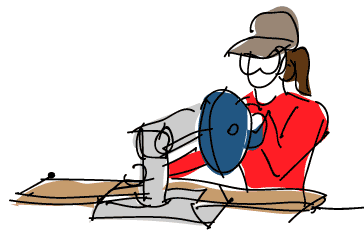Reasoning: Everyone has to have a job, right?
With very few exceptions, everyone in our society has to work in business, whether it's their own or someone else's. But we're never taught about business in school. So why not teach students about how business works right from the get-go?

When people learn that they can do simple things for themselves they feel competent, successful, and in control of their lives. Feeling confident, they are willing to take on new challenges. Learning how to work with tools and then learning to rehab houses would provide students with that feeling of competence; in addition, students would also see the transformation of Baltimore neighborhoods by their own hands.
Finally, the skills they learn will remain valuable to them when they own their own homes. The ability to use tools is a transferable skill, useful in other arenas. These skills will make them more resilient and contribute not only to their growth but to their development.
The vision of the Baltimore Bauhaus is that, when the students graduate, they would:
- Have real-life business skills
- Have the knowledge to start and run a small business
- Go to business school and have a two-year head start over the other students
- Or, if they take a job, to have a mile-high view of where they fit into that business and be able to contribute to its success, instead of just "having a job."
The Baltimore Bauhaus will serve to supply homes to homeless families of school-age children. It is even possible it could serve as an engine to supply inexpensive housing for families in an area where rents might be $500 a month and incomes only $1000 a month and home ownership is out of reach. Students would see their learning transform their own community from the inside out.
Approach
In the Baltimore Bauhaus, we would configure the curriculum to be project-based and centered on learning how businesses operate and how to make things (see Curriculum).
By learning about businesses, when students get out in the world of work they will understand what they are doing, where they fit in the overall business, and be able to make informed choices about their career and where and how to get there.To reinforce business concepts, the school would run a business and the students would be exposed to all aspects of that business. As empty buildings are a plentiful, inexpensive resource in Baltimore City and there is a great need for low-cost housing, an obvious business choice would be rehabbing those houses.
Educational Partner
The ideal partner for this project is the Baltimore City Schools. Even though potentially more restrictive to create this school within the school system than as a private or charter school, a project like this would show that public school systems can innovate and could serve as a model for entrepreneurialism for public schools in other cities.